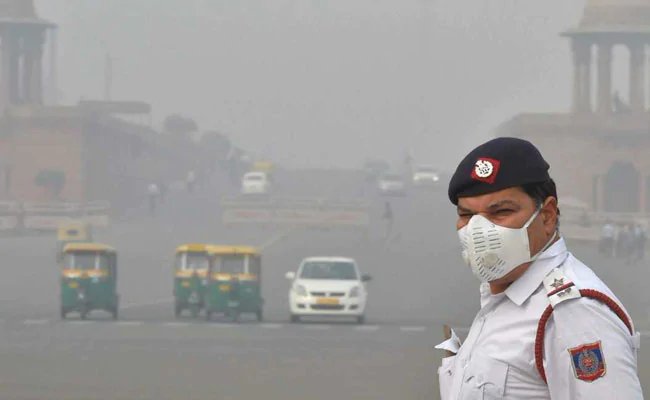Thick haze surrounds Delhi, air quality 'very poor'

- Country:
- India
Delhi's air quality remained in the 'very poor' category for the third consecutive day Wednesday due to "unfavourable meteorological conditions" that slowed down dispersion of pollutants even as thick haze engulfed the city, authorities said.
The overall air quality index (AQI) of Delhi was recorded at 323, according to the Central Pollution Control Board (CPCB) data.
An AQI between 0 and 50 is considered 'good', 51 and 100 'satisfactory', 101 and 200 'moderate', 201 and 300 'poor', 301 and 400 'very poor', and 401 and 500 'severe'.
The CPCB said 25 areas of Delhi recorded 'very poor' air quality while 11 areas recorded 'poor' air quality.
The level of PM2.5 -- particles in the air with a diameter of fewer than 2.5 micrometres -- was recorded at 179 and the PM10 level was recorded at 338, it said.
In NCR, Ghaziabad, Faridabad and Noida recorded 'very poor' air quality while Gurgaon fell into the 'poor' category, the CPCB data showed.
According to the Indian Institute of Tropical Meteorology, a haze has engulfed Delhi and the wind speed and ventilation index are "extremely unfavourable" for dispersion of pollutants.
Ventilation index determines how fast pollutants can get dispersed.
The ventilation index of around 6,000 sqm/second gets rid of pollutants, but it came down to 1,500 sqm/second on Wednesday in the city.
According to the Centre-run System of Air Quality and Weather Forecasting (SAFAR), the air quality is 'very poor' and likely to improve due to a slight increase in wind speed but will remain in 'very poor' for the next two days and then increase.
"Due to cold front up in the north, the wind speed has increased so a decline (in pollution) is expected. However, at the time of withdrawal after two to three days, a lot of moisture may enter Delhi which is not favourable for the air quality. The contribution from stubble biomass is nil," the SAFAR said.
(With inputs from agencies.)
ALSO READ
Odisha govt declares holidays for its employees on voting days
CBDT enables ITR filing for FY24; 23,000 returns filed in 4 days
Kerala govt allows female nurse to join Kozhikode Medical College after six days delay, protests
More than 600 people still stranded in Taiwan, 3 days after earthquake that killed at least 12
Home Affairs offices to open Saturdays for ID collection services










